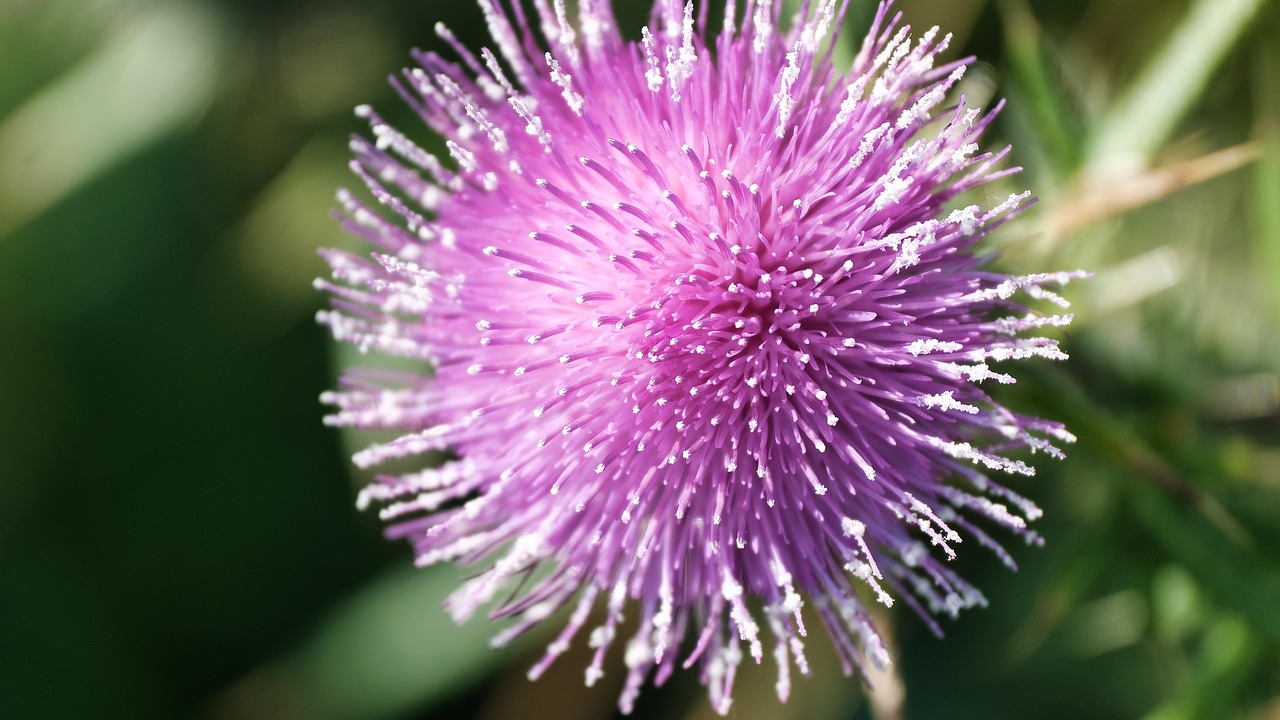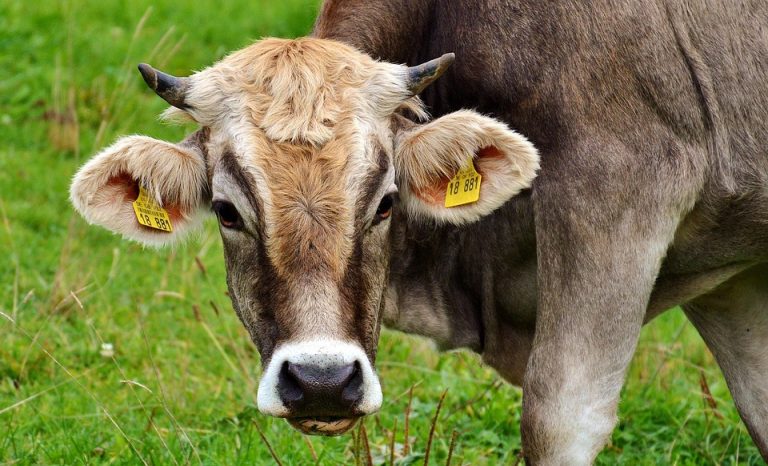Did you know that your liver is the body’s natural detox powerhouse? It processes everything from the food you eat to the medications you take. Yet, with modern diets and lifestyles, our livers can become overwhelmed. If you’ve ever felt sluggish or bloated, you might be wondering how to give your liver a little TLC. Luckily, nature has provided us with some herbal remedies that can help support liver detoxification.
In this article, we’ll explore five herbal remedies that not only promote liver health but also help detoxify this essential organ. Let’s dive in!
Contents
1. Milk Thistle: The Classic Liver Protector
What is Milk Thistle?
Milk thistle (Silybum marianum) has been used for centuries as a liver tonic. Its key active ingredient, silymarin, is known for its antioxidant and anti-inflammatory properties. Some studies even suggest that milk thistle can help regenerate liver cells.
How It Works
Milk thistle helps protect liver cells from toxins and promotes the detoxification process. It’s thought to enhance glutathione levels, a powerful antioxidant that plays a crucial role in neutralizing harmful substances.
Pros and Cons
Pros:
- Supports liver cell regeneration.
- May improve liver function in people with liver diseases like cirrhosis and hepatitis.
- Generally considered safe with few side effects.
Cons:
- Some people may experience gastrointestinal upset.
- Limited evidence exists for its effectiveness in healthy individuals.
Practical Use
You can find milk thistle in various forms, including capsules, tinctures, and teas. A common dosage ranges from 150 to 600 mg of silymarin per day. However, it’s best to consult a healthcare provider for personalized advice.
2. Dandelion Root: The Unsung Hero
What is Dandelion Root?
Often dismissed as a pesky weed, dandelion (Taraxacum officinale) has a long history of use in traditional medicine. The root is particularly beneficial for liver health and detoxification.
How It Works
Dandelion root is known to stimulate bile production, which helps in the digestion and removal of toxins. It also has diuretic properties, aiding in the elimination of waste through urine.
Pros and Cons
Pros:
- Promotes bile flow, which aids digestion.
- Rich in antioxidants and vitamins.
- May help reduce inflammation.
Cons:
- Some individuals may experience allergic reactions.
- High doses can lead to digestive discomfort.
Practical Use
Dandelion root can be consumed as a tea, tincture, or in capsule form. A common recommendation is to drink 2-3 cups of dandelion tea daily. Just be sure to consult your doctor if you’re on medications, as dandelion can interact with certain drugs.
3. Turmeric: The Golden Spice
What is Turmeric?
Turmeric (Curcuma longa) is a vibrant yellow spice that has gained popularity not just for its flavor, but also for its health benefits. Its active compound, curcumin, is known for its powerful anti-inflammatory and antioxidant properties.
How It Works
Curcumin helps detoxify the liver by increasing the production of enzymes that flush out toxins. It also aids in reducing inflammation, which can be beneficial for individuals with liver conditions.
Pros and Cons
Pros:
- May improve liver function and reduce fat buildup in the liver.
- Supports overall digestive health.
- Generally safe for most people.
Cons:
- Absorption can be low unless taken with black pepper or fats.
- High doses may cause gastrointestinal issues.
Practical Use
Turmeric can be added to smoothies, soups, or taken as a supplement. A typical dosage of curcumin is around 500-2,000 mg per day. Again, check with your healthcare provider before starting any new supplement.
4. Artichoke: The Liver’s Friend
What is Artichoke?
Artichoke (Cynara scolymus) is not just a delicious addition to your plate; it’s also a fantastic herbal remedy for liver health. The leaves of the artichoke are particularly beneficial.
How It Works
Artichoke extract is known to stimulate bile production and improve digestion. It also contains antioxidants, which can help protect liver cells from damage.
Pros and Cons
Pros:
- Supports bile flow and digestion.
- Contains antioxidants that may protect liver cells.
- May help lower cholesterol levels.
Cons:
- Some people may experience allergic reactions.
- Can cause digestive upset in some individuals.
Practical Use
Artichoke can be consumed as a supplement or in tea form. A common dosage is 320 mg of artichoke leaf extract taken three times a day. As always, consult your doctor for tailored advice.
5. Burdock Root: The Detoxifier
What is Burdock Root?
Burdock (Arctium lappa) is often found in herbal remedies for its detoxifying properties. Traditionally used in Japanese cuisine, burdock root is revered for its ability to cleanse the body.
How It Works
Burdock root acts as a diuretic, helping to eliminate toxins via urine. It also supports digestion and liver function, making it a great addition to your detox routine.
Pros and Cons
Pros:
- May help purify the blood and improve skin health.
- Rich in antioxidants and anti-inflammatory compounds.
- Generally safe for most people.
Cons:
- High doses may lead to digestive issues.
- Allergic reactions are possible in some individuals.
Practical Use
Burdock root can be consumed as a tea, tincture, or supplement. A typical dosage is around 1-3 grams of dried root per day. Make sure to consult a healthcare provider if you’re pregnant or nursing.
FAQs
1. How do I know if I need a liver detox?
If you’re experiencing symptoms like fatigue, bloating, or digestive issues, it might be a sign your liver needs support. However, it’s always best to consult a healthcare provider for personalized advice.
2. Can I take these herbs together?
While many of these herbs complement each other, it’s essential to consult a healthcare provider to avoid potential interactions and ensure safety.
3. Are there any side effects?
Most herbal remedies are safe for most people, but some may experience digestive issues or allergic reactions. Always start with a lower dose to assess tolerance.
4. How long should I take these herbs?
The duration can vary based on individual needs and health conditions. It’s best to consult a healthcare provider for personalized recommendations.
Conclusion
Supporting your liver through natural remedies can be a game-changer for your overall health. From milk thistle to burdock root, these herbs not only help detoxify but also enhance liver function. Remember, though, that while these remedies can be beneficial, they’re not a substitute for a balanced diet and healthy lifestyle.
So, why not give one of these herbal remedies a shot? You might just find that your liver feels lighter and your energy levels soar. Just remember, as with all health practices, consult with a healthcare provider to tailor the best approach for you.
Disclaimer: This article is for educational purposes only and is not a substitute for professional medical advice. Always consult a qualified healthcare provider before making changes to your health routine.
References
-
Kren, V., & Martinkova, L. (2016). Silymarin: A review of its effects on liver diseases. World Journal of Gastroenterology, 22(26), 6016-6021. https://www.ncbi.nlm.nih.gov/pmc/articles/PMC4902177/
-
Kwon, Y., & Kim, S. (2019). The effects of dandelion (Taraxacum officinale) on liver function: A systematic review. Journal of Ethnopharmacology, 243, 112078. https://www.sciencedirect.com/science/article/pii/S0378874119305708
-
Gupta, S. C., et al. (2013). Curcumin, a component of turmeric: From farm to pharmacy. BioFactors, 39(1), 13-19. https://www.ncbi.nlm.nih.gov/pmc/articles/PMC3678279/
Get Your FREE Natural Health Guide!
Subscribe now and receive our exclusive ebook packed with natural health tips, practical wellness advice, and easy lifestyle changes, delivered straight to your inbox.




